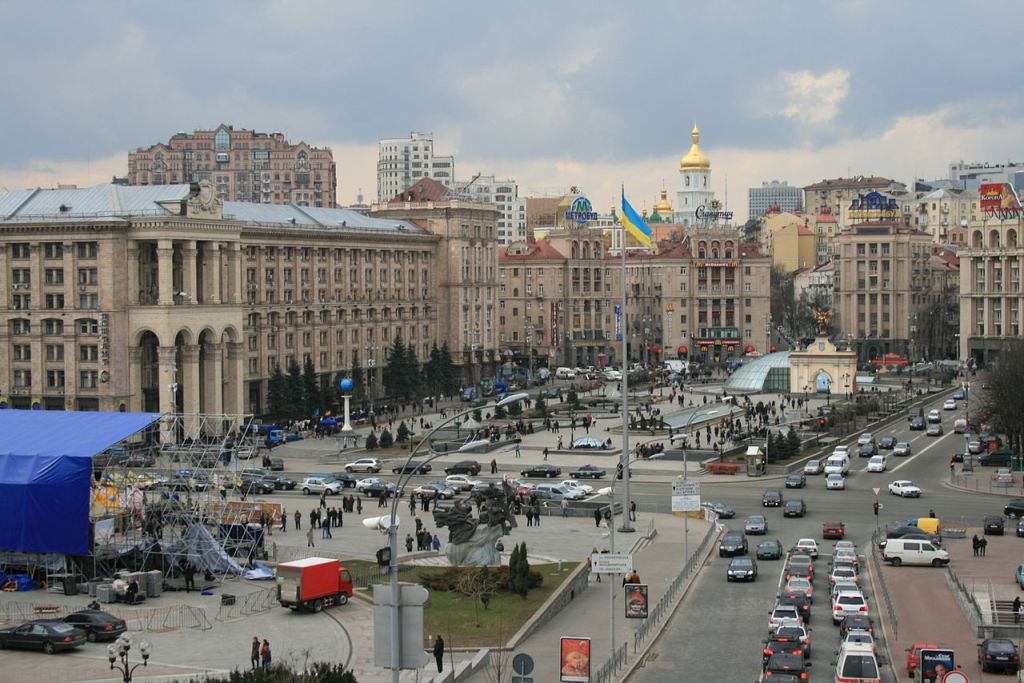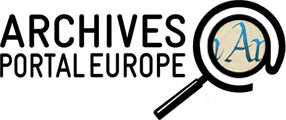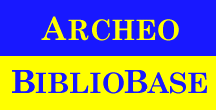
After the Second World War Europe had for decades no wars within its borders. The wars devastating the former Yugoslavia ended a period of peace, and after the war in Kosovo yet another peaceful period came which has now been broken. The Russian invasion of Ukraine has started an uncertain period. Assessing the facts about the war is difficult, because truth is the first victim of war. What can you find online about the history of Ukraine, Russia and Eastern Europe to study sources for the history and cultural heritage of peoples and nations involved and connected with them? In this post I will look at a number of archival guides, digital archives and libraries, and guides to cultural heritage. Some websites cannot be reached currently. Although I provide information about many archives and digital libraries on my legal history website it took me some time to bring things here together and to update my concise descriptions of resources. Even if this post does not bring consolation or help, it helps to focus attention to some matters that ere particular urgent.
Finding archives
In view of the vast dimensions of the digital world it is really silly to think you can find anything with one search engine, let alone with the algorithms of the Great Firm. Guides and web directories are not a thing we used only twenty years ago for good reasons, they still can be enormously helpful. Such guides are vulnerable for technical problems and difficult long term maintenance, especially when projects have to be integrated into normal core practice and functioning. Sometimes administrators and managers fail to see the unique value of what seems to them an obsolete legacy from the past century. The lifespan of digital projects can be relatively short. In some cases no notice is even given of the end or decommissioning of an online resource.
Let’s look at some European archive portals. Projects may depend on input from others or from the institutions involved. In the archival directory of the Archives Portal Europe you can find just one Ukrainian institution. Russia is not represented at all. The archival directory of the Cendari portal does not function currently. The International Council on Archives (ICA) has plans for an online directory, but in April 2020 the initiative The Archives and Records are Accessible was launched providing you with an interactive map of archives worldwide. This map shows some forty archives within Ukraine. It seems that almost every archive with a subdomain on the web domain of the Ukrainian government cannot be reached right now, except for the Central State Archive of Public Organizations in Ukraine (CDAGO) in Kyiv. Among its holdings is the archive of the communist party in Ukraine. There is an overview of the archival collections at the CDAGO.
ICA has created a directory of institutions all over the world with resources on literature and art. For Ukraine there is no entry in this directory. By the way, since 2018 ICA has a disaster relief fund.
In my view the most useful archival guide for Ukraine is offered online by the German Bundesstiftung zur Aufbearbeitung der SED-Diktatur (Goverment Foundation for the Critical Appraisal of the SED-Dictatorship) in its Vademecum-Reihe, a series of thirteen guides for the history of certain European countries and regions in the twentieth century. In 2008 appeared the Vademecum-Contemporary History Ukraine. A guide to archives, research institutions, libraries, associations and museums, edited by Georgiy Kasianov and Wilfried Jilge (PDF, 0,7 MB). The description of archives is fairly extensive. The information on museums is more concise, websites are often not mentioned. The section with websites is short but certainly important.
Using the Swiss meta-crawler eTools I could finally trace a digital version of Archives of Ukraine. Guide book issued by the State Archival Service of Ukraine (Kyiv 2012; PDF, 11,6 MB). It can be found at the website of the Ukrainian National Remembrance Institute which brings information online about many subjects in Ukraine’s history in the twentieth century. The guide to Russian and Ukrainian archives of University College London disappointingly offers only very concise information about archives in Russia.
For finding information about Russian archives you can benefit from several guides. With its sheer width the guide for Archives of Russia, Eastern Europe and Eurasia, University of Illinois at Urbana-Champaign, easily stands out. You can use it in combination with the subject guides of the Slavic Reference Service of this university. Alas the guide created by the National Archives of Ukraine cannot be reached at this moment. It is a pity the link of the University of Illinois to its own extensive guide for Ukrainian archives does not function, but within the subject guides you can visit a similar interesting guide for Ukrainian archives. The general introduction to these archives and their history is worth your attention, too. By the way, the University of Illinois has put online The Russian Empire and Soviet Union: A Guide to Manuscripts and Archival Materials in the United States, Steven A. Grant and John H. Brown (eds.) (Boston, MA, 1980) as a database. This guide can be viewed in page view or PDF at the website of the Library of Congress, European Reading Room.
In the following guides the focus is on Russia itself and the former Soviet Union. The portal Access to Russian Archives is part of the TICFIA Project created by Eastview. Luckily you have free access to this guide for federal and regional archives with a search interface in English and Russian. The Russian State Archives offer Guides book search, a database for searching records in a number of Russian archives. It comes with an interface Russian and English, with transliteration option, a most useful thing. Let’s not forget another work in print: For archives in Moscow and St. Petersburg there is the massive guide by Patricia Kennedy Grimsted, Archives in Russia. A Directory and Bibliographic Guide to Holdings in Moscow and St.Petersburg (London, etc., 2016).
Eastview comes into view again with the ArcheoBiblioBase: Archives in Russia, long hosted by the International Institute for Social History, Amsterdam, but since 2020 it can be visited at its new URL. This database, too, points you to the Derzhavnii Komitet Arkhiviv Ukrainy, unfortunately not reachable now. I will not praise here the IISH again, but this online service is indeed most valuable.
Patricia Kennedy Grimsted has created a summarized version of the information for Ukrainian archives taken from ArcheoBiblioBase. For this database her monograph Archives and Manuscript Repositories in the USSR, vol. 3: Ukraine and Moldavia, I: General Bibliography and Institutional Directory (Princeton, NJ, 1988) has paramount importance. She is also the author of Trophies of war and empire: the archival heritage of Ukraine, World War II, and the international politics of restitution (Cambridge, MA, 2001).
By now it should be clear that gaining correct and updated information about Ukrainian archives is not as easy as you would expect in our world with the fruits of thirty years online information supposedly at your finger tips! These days I could reach only a few archival websites in Ukraine. I should mention in particular the Centre for Research on the Liberation Movement, Lviv, a centre for the study of Ukraine’s history since the nineteenth century, with its own Digital Archive of the Ukrainian Liberation Movement containing digitized documents from several periods since the nineteenth century, searchable with an interface in Ukrainian and English. We saw already the Ukrainian National Remembrance Institute with several important projects.
In order not to focus only on current developments I remembered the EHRI portal (European Holocaust Research Infrastructure). At this portal you can find an introduction to Ukrainian archives with a view for resources concerning this subject. Two years ago I looked at the EHRI project in a post about the history of looted and lost art during the Second World War. On February 25, 2022 the International Council on Archives published a statement of solidarity with Ukrainian archives and archivists.
Digital libraries in Ukraine
It took me relatively much time to create the section on archives in this post, even though I had at least some archival guides at hand on my legal history website. It could do no harm to check these guides again and to look elsewhere for more information. However, in 2020 and 2021 I had already searched for digital libraries in Ukraine. Their number is relatively low. It appeared that a number of digital institutional repositories have subcollections with historic material. For a quick look I would like to refer you to my web page for digital libraries. Among recent additions is the virtual museum (interface Ukrainian and English) of the Digital Library, National University of Kyiv-Mohyla Academy, Kiev.
Instead of looking here at particular digital libraries I had better mention here the portal of the Institute for the History of Ukraine. You can use a multilingual interface among other things to navigate a database for internet resources, but unfortunately it seems at the time of writing only the first results of each section become visible. The database contains sources from many countries and does not restrict itself to Ukraine.

When starting this post I soon found the website of the Harvard Ukrainian Research Institute (HURI). Its list of teaching resources is a fair attempt at a comprehensive guide to online resources for Ukrainian culture and history. There is a section on digital archival collections, almost all of them the fruit of research centres, and not digitized archival records held by more regular archives in Ukraine. Apart from its own library and archive the great jewel of the HURI is the MAPA Digital Atlas of Ukraine with both historical and contemporary maps.
Cultural heritage in Ukraine
Originally I had liked to put here a similar and extensive section focusing on digital access to Ukraine’s cultural heritage, but it is perhaps more sensible to publish this post as quickly as possible. I will at least point here to another service of the University of Illinois, an overview of the main bibliographies for Ukraine, part of its guide for Ukraine. The V.I. Vernadsky National Library of Ukraine provides you with an array of online bibliographical resources. The dictionary platform Lexilogos has created for Ukraine a list of online dictionaries, language resources, and some general websites. As for other languages the first article of the Universal Declaration of Human Rights is given. The University of Iowa has a useful choice of language and culture resources, too.
The World Heritage Convention of UNESCO lists eight locations in Ukraine on its World Heritage List. For museums you could for example look at the Museum Portal. The 2008 Vademecum for Ukraine discussed earlier mentions a number of history museums. On February 24, 2022 the International Council on Museums (ICOM) issued a statement concerning the Russian invasion of Ukraine. The ICOM has a telling motto, “Museums have no borders, they have a network”. Feeling connected and staying in touch with Ukraine is certainly crucial now and in the future. Hopefully this post can support you in your own efforts to foster a connected future.
Some early additions
On February 27, 2022 I could reach the websites of the Central State Archive of Supreme Bodies of Power and Government (TsDAVO) in Kyiv, the State Archives of Lviv, the State Archive of the Kirovohrad Region. and the State Archive of the Kharkiv Region.
The website GeoHistory has a detailed guide on Russian archives. This website publishes regularly articles about Ukraine. ICA has created a bibliography about displaced archives and shared archival heritage. The German Slavistik portal with its links and databases can help you a lot (interface German and English). The library of the Davis Center at Harvard University provides guidance to materials concerning Eastern Europe at Harvard and elsewhere. At the website of the Ukrainian parliament you can find the official list of immovable cultural heritage in Ukraine (September 3, 2009).
Saving Ukrainian Cultural Heritage Online (SUCHO) is an initiative to create web archives of disappeared or threatened websites and digital projects in Ukraine. ReHERIT is a portal for Ukrainian cultural heritage (interface Ukrainian and English). Another website worth mentioning is the Center for Urban History in Lviv (interface Ukrainian and English) with several online projects.
It occurred to me I had not looked at all at OCLC’s ArchiveGrid portal for information about Ukrainian archives. As a matter of fact, no archive in Ukraine is currently present at this portal. I suppose I avoided ArchiveGrid because its mixture of information about archival institutions, archival collections in their holdings and even single objects is in my view awkward. However, searching for Ukraine does bring you to a number of institutions elsewhere in the world with relevant holdings that deserve mentioning.
The Centre for Medieval and Early Modern Studies at the University of Kent, Canterbury, has created an overview of websites and projects for Ukrainian history with a focus on manuscripts.
For Ukrainian contemporary law and government it is most sensible to look first of all at the guide provided by the Law Library of Congress, with guidance to other relevant guides as well.


